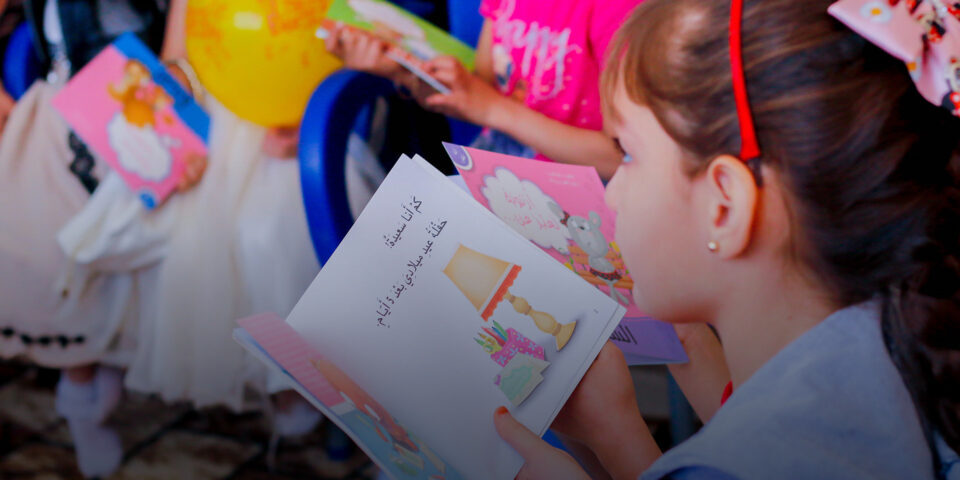
Syria Education Programme Resources .

Incorporating a Trauma-Informed Approach in Primary Education Programming in Northwest Syria
Constant exposure to traumatic or distressing events can impact an entire community, as well as an individual’s psychological, emotional, cognitive, spiritual, and social wellbeing. This can be exacerbated when survivors are excluded from the decision-making processes regarding issues that affect them, making them feel invisible and powerless.
Building on its experiences with fragile and conflict-affected communities around the globe, Chemonics adapted and applied its own learning to support potentially trauma-affected individuals in Northwest Syria, as part of its implementation of the UK Aid-funded Syria Education Programme (SEP), also known as Manahel. SEP’s approach focuses on healing and promoting individual agency by transforming passive programme participants into dynamic constituents of development programming, actively demonstrating “Safety”, “Collaboration & Mutuality”, “Empowerment, Voice & Choice”, and “Cultural, Historical & Gender Issues” – four of the Substance Abuse and Mental Health Services Administration’s (SAMHSA) six principles of trauma-informed delivery adopted by Chemonics.
This briefing paper captures key learnings from this process and shares insights on SEP’s work engaging children, caregivers, teachers, and the community to support the recovery of individuals from potential trauma exposure and distress caused by over 12 years of protracted crises. The insights are organised around three critical phases of the programme cycle: design, implementation, and evaluation. By sharing these valuable lessons, the paper seeks to contribute to the wider body of knowledge on effectively engaging communities in trauma-informed programming and promoting the recovery and wellbeing of those affected by trauma.
Syria Education Programme Research Brief – Equity in Learning Outcomes
This research is a continuation of work that the Syria Education Programme, also known as Manahel, has been undertaking over the last year to understand equitable children’s learning outcomes. It draws on the actor-based model in our Theory of Change and our Continuous Assessment dataset (described further below). It tells a data-driven story on how children in Manahel are doing, what we know about them, and what more we need to understand. This brief starts by setting out the work that we have undertaken thus far to understand equity issues. It then sets out the research questions that this brief seeks to answer and outlines the research design.
Societies wracked by protracted crises, which includes regular bombing of homes and schools, rarely provide an insight into the performance of children in those schools. Under the leadership of the Foreign and Commonwealth Development Office (FCDO), the Manahel programme has kept schools in NW Syria open and functioning and benefited almost 575,000 children through school, home and after school education and responded to their psychosocial and protection needs.
Despite the challenges, since 2019 early grade reading assessments (EGRA) have taken place in NW Syria due to the programme’s focus on improving and assessing learning. These assessments show that, as the immediate threat of war receded, children have shown remarkable resilience evidenced by their rapid improvement in reading scores.
This Information Brief presents reflections on undertaking EGRA in a protracted crisis over several years. It is based on the experiences and insights of Manahel team and seeks to provide a better understanding of these issues to assist in planning effective education interventions in similar situations of crisis. The Information Brief concludes that, in conflict affected areas such as NW Syria, implementing an independently validated teacher-led, rather than externally led, approach to assessment each term is more effective in a number of ways including managing issues of access and in engaging the entire teacher and student population in assessment and addressing learning improvements such that students can perform at their best.
